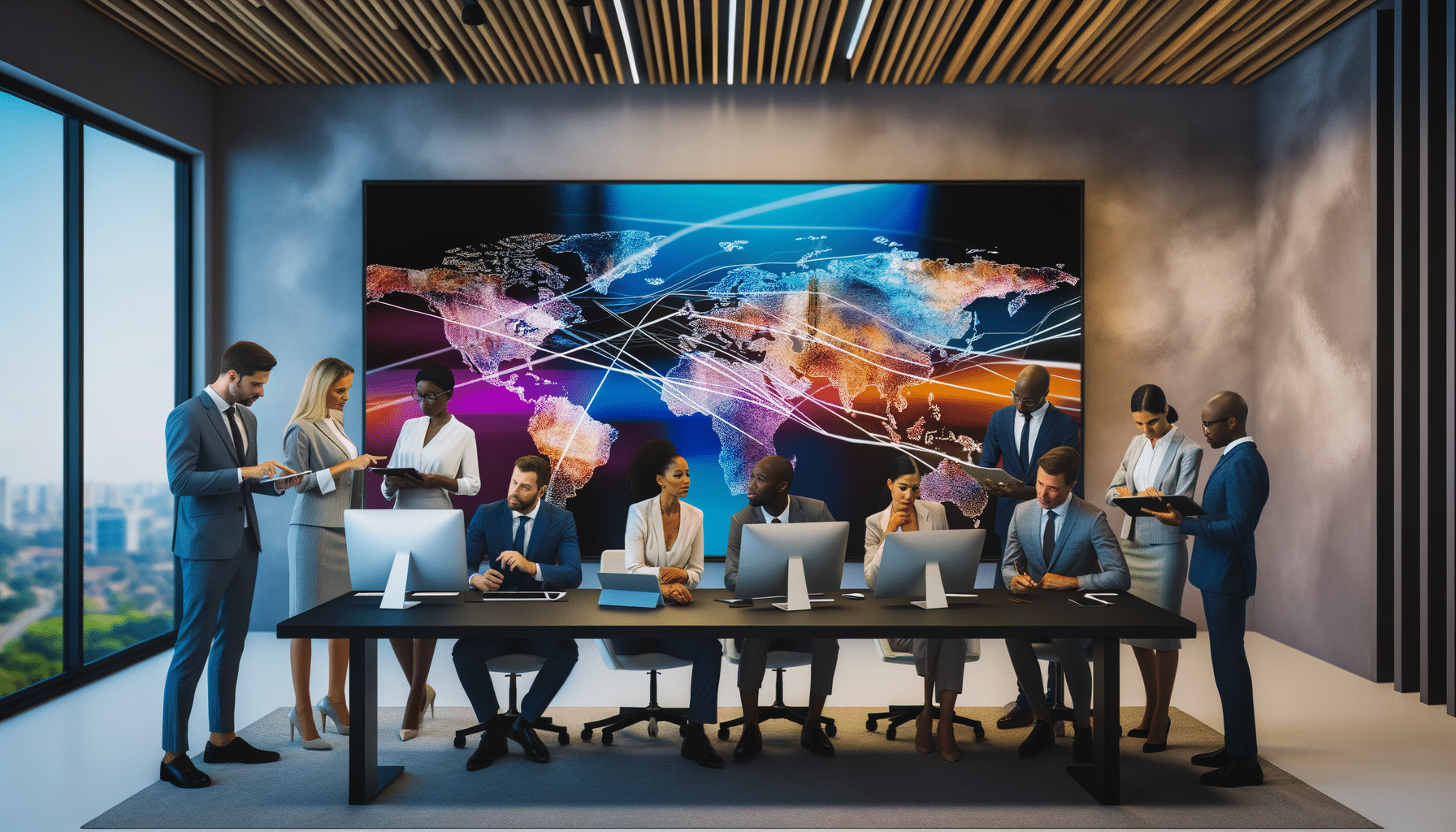- Language Solutions
- November 5, 2024
Innovations in Legal Translation Services

Unlocking Precision and Efficiency: Transforming Legal Translations through Innovation
As someone deeply embedded in the realm of technology and entrepreneurship, I recognize the immense potential that innovations hold in reshaping industries. One such area where advancement is critically shifting paradigms is in legal translation services. Accuracy, reliability, and confidentiality form the backbone of legal translations, and with rising global interconnectedness, the need to revolutionize how these services are delivered has become increasingly paramount.
Understanding the Current Landscape
Legal translation is a domain where precision is not just preferred; it’s non-negotiable. Legal professionals rely on highly accurate translations to ensure compliance, protect rights, and uphold international legal obligations. However, traditional translation methods, often dependent on human effort alone, pose challenges like inconsistency, time consumption, and potential for error.
Enter innovations that are ambitiously expanding the horizons of legal translation. These revolve around incorporating cutting-edge technology, reducing error margins, and accelerating processes, thereby setting a new benchmark for the industry.
Breaking Ground with Technology
The role of technology, particularly Artificial Intelligence (AI) and Machine Learning (ML), in transforming legal translation services is profound. Here’s how:
- Natural Language Processing (NLP): AI-based NLP is pivotal in understanding context, syntax, and semantics in document translations, thereby increasing accuracy. With advanced algorithms, subtleties and legal terminologies are better captured, reducing potential misinterpretations.
- Neural Machine Translation (NMT): NMT leverages deep learning to provide translations that closely mimic human-like understanding. For legal translations, where nuance carries significant meaning, this is a game-changer.
- Automated Workflow Management: Innovative legal translation platforms now seamlessly integrate tools that handle complex workflows. Automation manages documents through various stages of translation, editing, and quality control, enabling quicker turnaround times with minimal human intervention.
Ensuring Reliability and Confidentiality
Confidentiality and data integrity in legal translation can make or break trust. Here, again, technology stands as the vanguard. Blockchain, with its immutable and distributed ledger capabilities, ensures that sensitive legal documents remain secure from unauthorized access or tampering. Additionally, AI-driven authentication procedures enhance document integrity and restrict access by implementing sophisticated verification measures.
Aligning with Regulatory Standards
The legal industry is heavily regulated, necessitating translations that not only convey accurate meanings but also adhere to specific legal standards and terminology. Record-keeping platforms, such as my own—RecordsKeeper.AI—integrate with these innovative solutions to automate compliance processes and ensure adherence to norms like GDPR or HIPAA, paralleling how AI translates and interprets legal nuances.
Revolutionizing Legal Translation: What the Future Holds
Innovation in legal translation is not a fleeting trend but a robust pathway to the future. As entrepreneurs and industry leaders, it’s imperative to forecast and prepare for upcoming shifts:
- Continued evolution of machine learning techniques will further refine the nuances of legal terminology translations.
- Interoperability among global platforms will enhance cross-border legal processes, making high-quality translation pivotal.
- Augmented reality could transform how contracts or legal terms are visually represented, offering a multidimensional understanding of legal documents.
The opportunity lies in embracing these innovations, enabling legal professionals to channel more effort into strategic, analytical roles rather than procedural tasks. Growing trust in technological advancements within legal translation can aid in significant progress not just in accuracy and efficiency, but also in bridging cultural and linguistic gaps across jurisdictions.
Your Strategic Advantage Awaits
As I continue to tread the path of entrepreneurship, leading RecordsKeeper.AI into its future of certainty and security, I strongly advocate for the forward-thinking adopters of these innovations—those who see potential in leveraging technology to refine their practice, enabling better service delivery to clients worldwide.
In closing, I invite you to stay updated with these trends, aligning yourself with the future of legal translations. Let technology be the partner in your journey to excellence and let us, at RecordsKeeper.AI, help guide that transformation. For more insights and actionable strategies, stay connected with me. Together, we can unlock unparalleled potential.
Toshendra Sharma is the visionary founder and CEO of RecordsKeeper.AI, spearheading the fusion of AI and blockchain to redefine enterprise record management. With a groundbreaking approach to solving complex business challenges, Toshendra combines deep expertise in blockchain and artificial intelligence with an acute understanding of enterprise compliance and security needs.
Archives
- January 2025
- December 2024
- November 2024
- October 2024
- September 2024
- August 2024
- July 2024
- June 2024
- May 2024
- April 2024
- March 2024
- February 2024
- January 2024
- December 2023
- November 2023
- October 2023
- September 2023
- August 2023
- July 2023
- June 2023
- May 2023
- April 2023
- March 2023
- February 2023
- January 2023
- December 2022
- November 2022
- October 2022
- September 2022
Want to get more content like this?
Signup to directly get this type of content to your inbox!!
Latest Post
Document Control for Equipment Maintenance
- January 20, 2025
Managing Records for Multiple Clients
- January 19, 2025
Handling Conference Documentation
- January 18, 2025
Setting Up Department Record Reviews
- January 17, 2025





